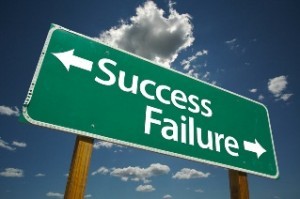
In the modern business world, we sometimes tout failure as a virtue that almost inevitably leads to success. Popular examples include Thomas Edison's 1,000+ unsuccessful attempts to improve the light bulb before hitting on the right solution, and Bill Gates' unsuccessful first business. Experts tell us repeatedly to fail forward, to fail as fast as possible, to dare to fail—because it makes us smarter and better in the long run. So it was refreshing to encounter a Harvard Business School working paper called "Performance Persistence in Entrepreneurship" that takes the opposite perspective.[i] The authors discovered that brand-new entrepreneurs succeeded just about as often as those who had tried before and failed (18% vs. 20%). The most successful entrepreneurs were those who had already … [Read more...]











